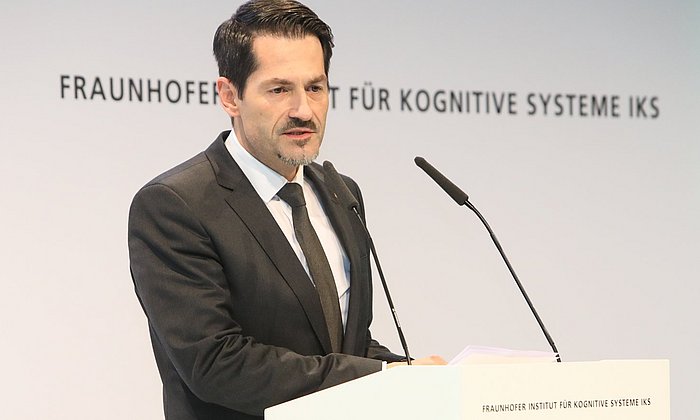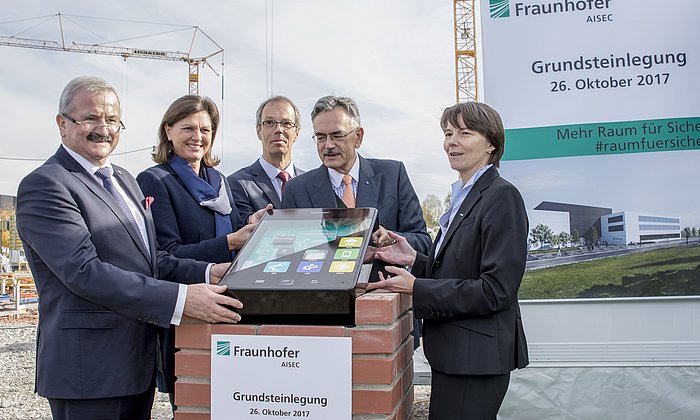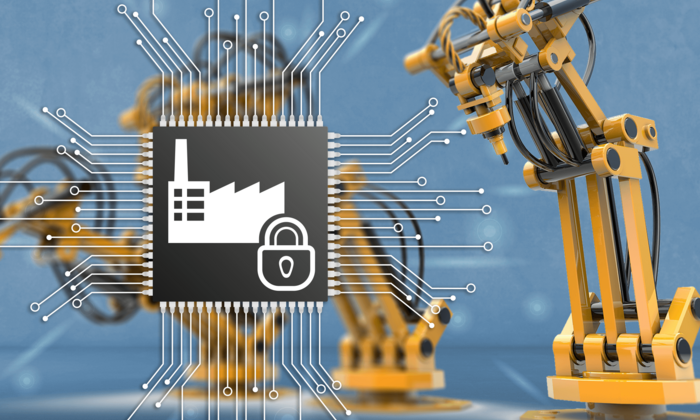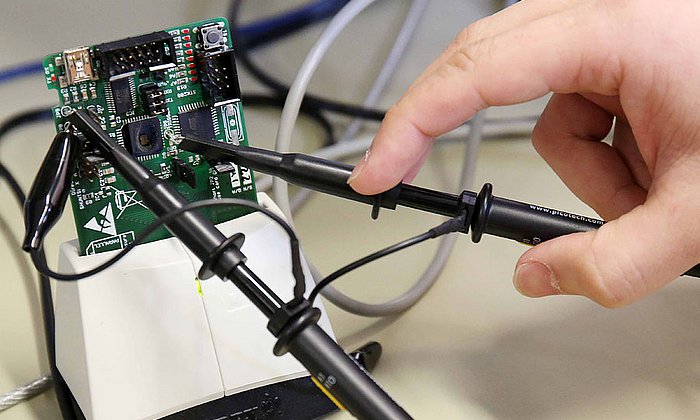Project Aquorypt aims to develop defences against the cyber threats of the future
IT security for the quantum computing age

Cryptography is already used in cars and industrial control equipment today: Communication between the various components is encrypted. This is intended to prevent the transfer of malware through maintenance interfaces, for example. In a vehicle, hackers could disrupt safety systems, perhaps causing the brakes to be slammed on while driving at full speed. Cyber attacks on industrial facilities could lead to the theft of knowledge on production processes or the shutdown of entire factories. As electronic systems become even more tightly networked in the future, IT security for software and hardware will become increasingly important.
However, with the steady advances in the development of quantum computers, many encryption algorithms could become ineffective in the foreseeable future. Although conventional encryption tools such as elliptical curve cryptography are unbreakable for today's computers, quantum computers would be quite capable of cracking them.
Aquorypt research project develops new methods
In the Aquorypt project, research institutes and companies, working under the leadership of TUM, will cooperate to address these concerns by developing new quantum-resistant hardware and software for various application cases. “We will focus particularly on the specific demands posed by the different applications,” says Georg Sigl, Professor of Security in Information Technology at TUM. “Chips in credit cards or health insurance cards must be highly secure, for example, but are subject to tight limits with regard to storage space and computing power. Industrial systems, on the other hand, can accommodate more powerful computers, but must meet demanding real-time performance standards. Moreover, they are often designed for extremely long service lifetimes of up to 30 years. We are therefore developing hardware with updatable encryption algorithms.”
Along with the Technical University of Munich (the project lead manager), participants in the research project "Aquorypt – applicability of quantum computer resistant cryptographic algorithms" are Fraunhofer AISEC, Giesecke+Devrient Mobile Security GmbH, Infineon Technologies AG, Siemens AG and the Technical University of Darmstadt. The project has been funded for three years by the Federal Ministry of Education and Research (BMBF) with a total funding volume of 5.1 million euros.
Technical University of Munich
Corporate Communications Center
- Paul Hellmich
- paul.hellmich@tum.de
- presse@tum.de
- Teamwebsite
Contacts to this article:
Prof. Georg Sigl
Technical University of Munich (TUM)
Chair of Security in Information Technology
Tel: +49 89 289-28250
sigl@tum.de



